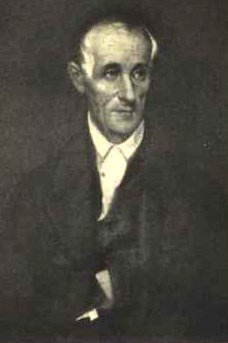podcast 379 – AI and I evaluate my debate with James White
Working through the arguments with an assist from AI.
Working through the arguments with an assist from AI.
Dr. Winfried Corduan is emeritus Professor of Philosophy and Religion at Taylor University, and has been a blogger since before it was cool. His scholarship is thorough, multi-disciplinary, insightful, and informed by his own travel and conversations. He’s well known among students of apologetics for his informed engagement with members of other religions.
By me, here at the excellent Internet Encyclopedia of Philosophy (printable version). A taste of it: …pluralistic approaches to religious diversity say that, within bounds, one religion is as good as any other. In contrast, exclusivist approaches say that only one religion is uniquely valuable. Finally, inclusivist theories try to steer a middle course by agreeing with exclusivism that one religion has the most value… Read More »new article surveying Theories of Religious Diversity
“Before Abraham was, I was already, in God’s plan, the Messiah.”

Last time we briefly explored Redirection, the first of our four ways to respond to apparent contradictions in theology.
The response of Restraint is a little more reasonable. This person realizes that a certain way of understanding, say, the doctrine of the Trinity, seems inconsistent. The Christian walking the path of Restraint declines to endorse that way of understanding the Trinity, or any other clear formulation. “Sure, if it meant X, then it would seem contradictory… but maybe it doesn’t mean X.”
The Restrained believer neither affirms nor denies X, exercising Restraint . He declines to say precisely what the great Doctrine in question is, because (he says) he doesn’t know what it is supposed to be. Read More »Dealing with Apparent Contradictions: Part 3 – Restraint (Dale)

“I hate wearing this stupid hat.
They didn’t make me a bishop anyways.
At least the cape’s pretty cool.
It’s got St. George’s Cross going on.”
In my last post, I gave some basic definitions for the ‘derivation view’ and the ‘generic view’ of the Trinity, and I said that the historical background for the ‘derivation view’ rests in the Nicene Creed’s claim that
(Q) The Son is begotten from the substance of the Father.
Of course, the meaning of ‘from the substance of the Father’ is not exactly clear, not in a philosophical sense anyways. What exactly is Q supposed to mean? In this post, I want to explain what one interpreter, namely Athanasius, felt was at stake with Q.
Read More »Derivation vs. Generic Theories — part 2: Arianism and the Trinity (JT)
In the first portion of this episode Dr. Thurow offers objections to subjective theories, and to penal substitution, ransom, and christus victor theories of atonement. Dr. Thurow then sketches his own, original approach to understanding atonement, which focuses on the collective sin of the human race.
We mustn’t offend people in other religions, right? That’s a standard of behavior many present-day Americans, Europeans, Indians, and others accept. And it’s a standard assumed as obvious in many academic contexts. But is it consistent with Christian values? The two bold apologists in the video below argue that it is not, citing New Testament precedents. We could also ask whether this no-offense standard is… Read More »Jay Smith and David Wood on religious confrontation vs. dialogue
“Yes, Mr. President,” stuttered the Fox White House correspondent, “you’re the only true president.”

What, if anything, is wrong with with the strategy of Resolution through Rational Reinterpretation? And why are most theologians so cold towards this strategy, while most Christian philosophers love it? Consider this quote by Moses Stuart on one of Leibniz’s takes on the Trinity:
The celebrated Leibniz was requested by a Loefler, who had undertaken to refute the writings of a certain English Antitrinitarian, to give him an affirmative definition of the persons in the Godhead. He sent for answer the following: – “Several persons in an absolute substance numerically the same, signify several, particular, intelligent substances essentially related.” On farther consideration, he abandoned this, and sent a second, which was, – “Several persons, in an absolute substance numerically the same, mean relative, incommunicable modes of subsisting.”
If Leibniz actually understood this, I believe he must have been a better master of metaphysics than any person who has ever read his definition.Read More »Dealing with Apparent Contradictions: Part 8 – Rational Reinterpretation, cont.

As I said last time, Arius maintains that the Son is created from nothing (ex nihilo), but Athanasius denies this. Much of the discussion depends on what these authors mean by ‘creation’. Before we go any further then, it will be helpful to establish a working definition for ‘creating something from nothing’. This requires some care, because we’re after a definition that both Arius and Athanasius would agree to. But so long as we make the right qualifications, I think that Arius and Athanasius do agree on what it means to create something from nothing.
Just so we have a rough idea of what we’re talking about, let me begin by describing creation in the following way: something is created from nothing if it’s produced without any pre-existing ingredients. Now, that’s a very loose way of putting it, but it makes the basic idea clear enough. We know that things get produced with pre-existing ingredients all the time. Masons build walls with bricks and mortar, cavemen make charcoal with fire and wood, humans procreate with sperm and eggs, and so on. But none of that counts as a creation. Something is created from nothing only when it’s produced without any pre-existing ingredients.
Read More »Arius and Athanasius, part 2 – Producing something with ‘ingredients’ (JT)
I have tendencies. Put me near a Subway restaurant, where I can smell the fresh bread, and I’ll get hungry, my mouth watering. Force me to watch reality TV shows, and I’ll become fatally bored. I have a tendency to smile in the presence of cute little kids. Doctrines do not have tendencies. They don’t do anything. They have meanings, and they stand in logical… Read More »Don’t think/write like a contemporary theologian – Part 3 – tendencies

The Council of Chalcedon (451 CE) condemned Monophysitism and Nestorianism. The following table helps to classify Monophysitism, Nestorianism, and Chalcedonianism.
Nestorianism: 2 natures, 2 persons
Chalcedonianism: 2 natures, 1 person
Monophysitism: 1 nature, 1 person
Read More »Christology and Heresy 2 – Monophysites, Chalcedonians, and Nestorians (JT)
What does one do when the search for truth clashes with one’s need to fit in?
On March 29, I debated Catholic apologist William Albrecht on whether or not Tertullian was a trinitarian. In this episode, our opening statements, and rebuttals, slightly edited (“cleaned up”) from the original audio (“in studio” for me, unfortunately, just over the internet for his side – but I did my best to make the whole thing listenable.) You can also listen to this episode on… Read More »podcast 33 – Albrecht vs. Tuggy debate – Was Tertullian a trinitarian? Part 1
Should we defend what we think are biblical, yet unintelligible or seemingly incoherent claims as “mysteries”?

STAGE 2. In this stage, Richard tries to show that perfect charity must be directed at another person. Here’s the quotation:
‘no one is properly said to have charity on the basis of his own private love of himself. And so it is necessary for love to be directed toward another for it to be charity’.
Read More »Richard of St. Victor 3 – Perfect charity must be directed at another person (JT)
If God made us to form true beliefs, why do we form false beliefs?
If a native English speaker says “you have a frog in your throat,” this means that your voice doesn’t sound normal, but is low, broken, “croaky.” It is a mistake to think that he is saying that you literally have a frog in your throat! What about when the author of Revelation refers to the Lamb slain from the foundation of the world and the… Read More »podcast 61 – Dr. Dustin Smith on preexistence in ancient Jewish thought
A trinitarian apologist changes his mind.